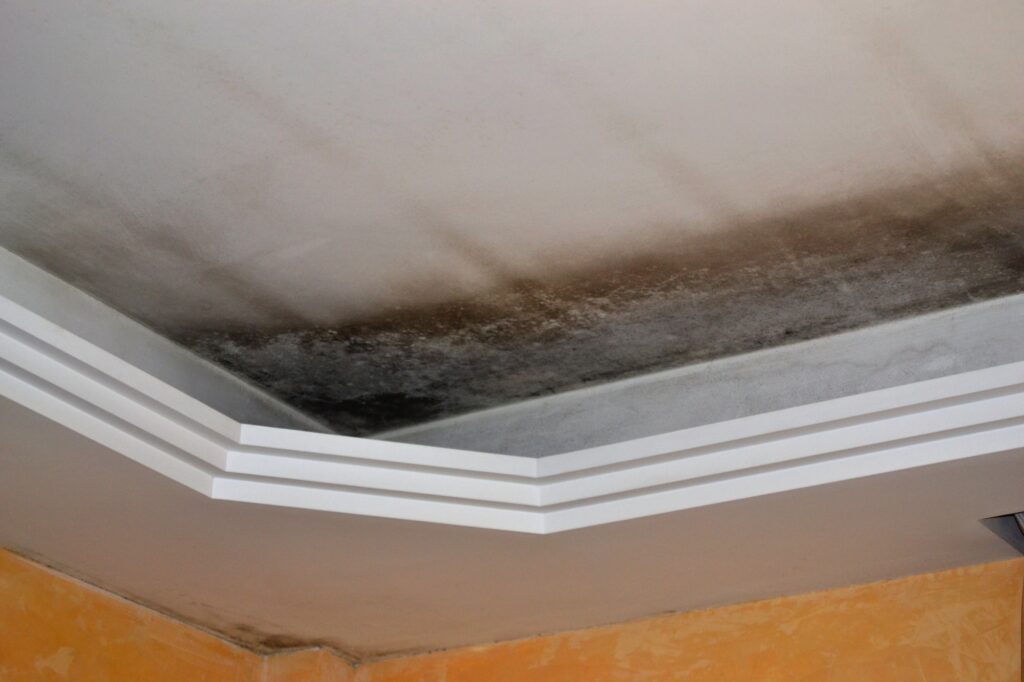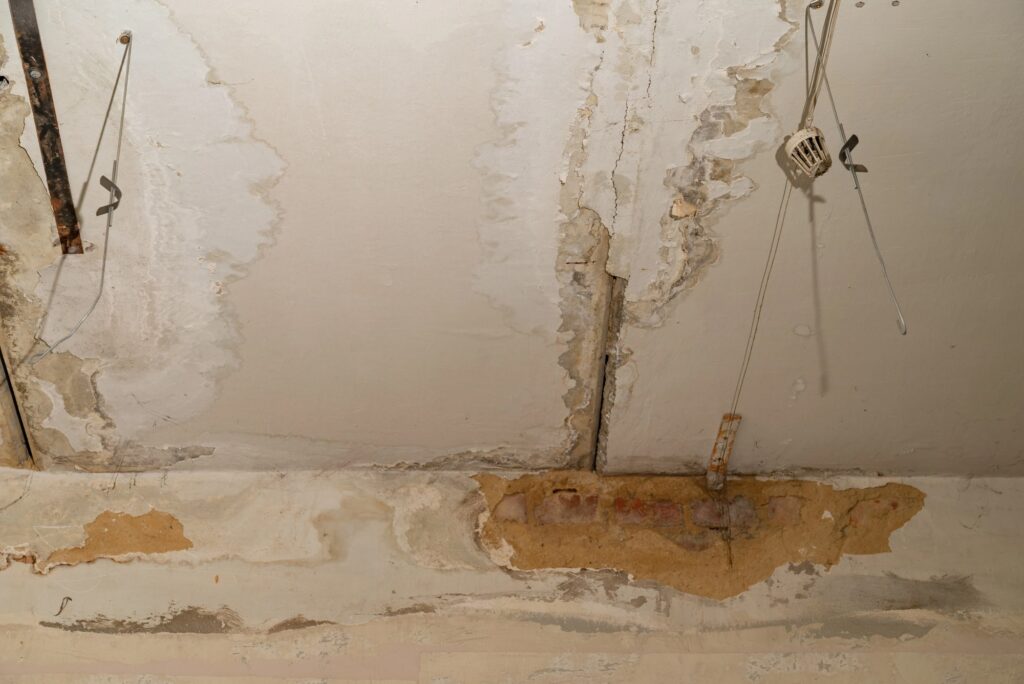Water damage can hit when you least expect it, and the mess can be both stressful and expensive to fix—especially for renters. A burst pipe, leaky roof, or an overflowing tub might seem minor at first, but the aftermath? Not so minor. Standard renters insurance usually protects against water damage from sudden mishaps, but it definitely doesn’t cover every water-related disaster.
Some folks assume all water damage is covered, but that’s just not the case. Flooding, for example, is almost never included, while a surprise pipe burst inside the apartment usually is. If you want to know for sure, you’ve got to dig into the fine print. Stuff like long-term leaks or water coming in from outside might leave you on your own.
What Renters Insurance Covers for Water Damage

Renters insurance deals with water damage in pretty specific ways. What’s covered depends on how the damage happened, what got ruined, and the rules in your particular policy.
Covered Incidents and Exclusions
Most policies help with water damage caused by sudden, accidental stuff happening inside your place. Think burst pipes, a washing machine gone rogue, or a tub that overflows. Sometimes, if rain sneaks in through a window or roof after a storm—and the place was kept up—the policy might help out.
But there are plenty of things that aren’t covered. Floods? Nope. You’ll need separate flood insurance for that. Damage from ignoring leaks or letting mold build up? Also not covered. Sewer backups? Usually excluded, unless you’ve bought extra coverage for that kind of thing.
Every policy is a little different, so you’ve got to read your documents to know exactly what’s what. Claims tend to get approved if the damage was sudden and not because someone ignored a problem.
Types of Water Damage Eligible for Coverage
Renters insurance might pay for damage from sudden leaks—like a busted pipe, a broken water heater, or an accidental overflow from an appliance. The key is that the problem wasn’t something you could have easily stopped.
Sometimes, water from storms is covered if the cause was accidental and not due to poor maintenance. For instance, if a kid leaves the bath running and it floods the place, that’s usually covered, since it’s unexpected.
But if water seeps in from the ground or there’s flooding from outside, basic renters insurance almost never helps. You’d need a separate flood policy for that.
Personal Property Protection
These policies are really about your stuff inside the rental. If water from a covered event ruins your electronics, clothes, furniture, or small appliances, renters insurance can help pay for repairs or replacements.
Most of the time, you’ll get the actual cash value—so, what your stuff was worth after depreciation. Some policies offer replacement cost coverage, which is a bit better, since it pays for a new item. Having lists or receipts for your valuables makes claims way easier.
But here’s the thing: insurance won’t pay for repairs to the apartment itself (like the walls or flooring). That’s on the landlord and their insurance. Check the “personal property coverage” section of your policy for the specifics.
Loss of Use and Additional Living Expenses
Loss of use—sometimes called additional living expenses—is a lifesaver if water damage makes your apartment unlivable. This part of your policy can help pay for a hotel, a short-term rental, or even higher food costs while you’re displaced.
There are usually limits, either daily or total, so keep an eye out for that. Save all your receipts for extra expenses, because you’ll need them for your claim.
This coverage only kicks in if the original water damage was something your policy covers.
Limits and Exceptions: When Water Damage Isn’t Covered
Renters insurance doesn’t cover every kind of water disaster. There are rules, exclusions, and things you’re expected to do to keep the coverage valid.
Flooding and Flood Insurance
Flooding is a big exclusion. Standard renters insurance won’t help if water comes in from outside—like heavy rain, rivers overflowing, or storm surge.
If you want flood protection, you’ll need to buy a separate policy, usually through the National Flood Insurance Program (NFIP) or a private company. Flood insurance is for water that rises up from the ground and gets in. Without it, you’re on your own for flood losses, even if the water sneaks in through doors or windows after a storm.
Policies usually spell out that water seeping from the ground or pooling outside first is considered flood damage. If you’re in a flood-prone area, it’s smart to ask about this and get extra coverage if you need it. Regular renters insurance also won’t pay for temporary housing or lost items from a flood unless you’ve got a flood policy.
Negligence and Maintenance Issues
Your insurance company expects you to do the basics—report leaks, keep the place in decent shape, and don’t ignore obvious problems. If water damage happens because you didn’t report a plumbing issue, skipped running the heat during a freeze, or let a leak drag on, they might deny your claim.
Neglecting maintenance, not telling your landlord about problems, or ignoring regular upkeep can all get your claim tossed out. Insurers see these as things you could have prevented.
So, read your policy’s section on maintenance and always tell your landlord about leaks, drips, or water issues right away. Fast action keeps your coverage safe and helps avoid headaches later.
Sewer Backup and Sump Pump Failures
Most basic renters policies don’t cover sewer backups or sump pump failures. Water coming up from drains, toilets, or the sump pump is almost always excluded. Even a heavy rain that overwhelms city pipes and sends water up through your drains? Not covered unless you’ve added special coverage.
Some insurers offer “sewer backup” riders for an extra fee, but you’ve got to get them ahead of time. Otherwise, you’re paying out of pocket if a sump pump fails or the sewer backs up.
Stuff like clogged drains, broken sump pumps during storms, or city sewer failures are common problems—especially in older buildings or flood zones—so consider adding extra coverage if you can. Regular maintenance helps, but it’s no substitute for insurance.
Accidental vs. Preventable Water Damage
Policies usually help with sudden or accidental water damage, like a pipe bursting or a washing machine hose popping off. These things happen out of the blue.
But if the damage comes from a slow leak or something you ignored for months, it’s probably not covered. For instance, if a pipe’s been dripping for ages and causes mold, the insurer will likely say it was preventable. Claims may also get denied if you ignored warning signs or skipped repairs.
It’s worth reading how your policy defines “accidental.” Keep an eye out for early water problems, fix them fast, and keep records of repairs. This makes it less likely your claim gets rejected.
Common Water Damage Scenarios Covered by Renters Insurance

Most renters insurance plans cover sudden, accidental water damage that starts inside your place. Stuff like plumbing failures, burst pipes, and surprise appliance leaks are usually included. Gradual problems or damage from poor upkeep? Not so much.
Burst Pipes and Frozen Pipes
Burst pipes can flood an apartment in no time. Renters insurance usually covers your belongings and cleanup if this happens. If pipes freeze and burst because it’s cold out, you’re typically covered—as long as you kept the heat on like you were supposed to.
If you ignored warnings about freezing temps and didn’t keep the place warm, your claim could get denied. Water from burst pipes can also lead to mold if it’s not cleaned up fast. Policies often cover the initial water damage but might skip paying for mold removal later.
Leaking Appliances and Accidental Leaks
A hose bursting on your washing machine, dishwasher, or fridge can do a lot of damage in a hurry. Renters insurance usually helps with ruined clothes, furniture, or electronics from these sudden leaks.
But don’t expect it to pay for fixing the actual appliance—just your stuff and maybe the cleanup. If the leak was sudden and not from a long-term problem, you’re more likely to be covered. If you ignored a slow leak, though, that’s probably excluded.
Ceiling Leaks and Broken Pipes
Rainwater leaking in from a storm or roof problem usually isn’t covered by renters insurance. But if a pipe bursts in the apartment above and water soaks your stuff, that’s more likely to be covered.
Damage to your electronics, clothes, or furniture from water coming through the ceiling is generally covered, up to your policy’s limit. Repairs to the ceiling itself? That’s on your landlord. Make sure to let your landlord and insurance company know about leaks right away—it helps with your claim.
Toilet Overflow and Toilet Flooding
When a toilet suddenly overflows or floods, it can wreck your floors, rugs, and anything nearby. Most renters insurance policies will cover your stuff if the overflow or backup is accidental or due to a plumbing failure.
But if the problem builds up slowly—like a drain getting clogged because nobody took care of it—insurance usually won’t help. It’s best to clean up and let your insurance company know right away. If you have extra sewer backup coverage, that might help with bigger messes, though it’s not always included. Oddly enough, if fire sprinklers go off by accident and ruin your things, your policy might cover that, too.
Factors That Influence Your Water Damage Coverage
Several things affect how your renters insurance handles water damage. The kind of coverage you have, what your landlord’s insurance covers, and how you go about filing a claim all play a part in what gets paid (and how fast).
Endorsements and Additional Coverage Options
Standard renters insurance usually covers lots of sudden water damage, but not flooding from storms or rivers. For those risks, you’ll need extra coverage or endorsements.
Endorsements are basically add-ons for more protection. Some options are:
- Sewer or drain backup coverage
- Additional flood insurance
- High-value items like electronics or jewelry
If you own pricey stuff, double-check if it’s covered or if you need to add something special. Most insurers have a menu of endorsements for belongings and water risks. These can really change what your policy will pay if you ever need to repair or replace things.
Landlord Insurance vs. Renters Insurance
Landlord and renters insurance aren’t the same. Landlord insurance covers the building itself—walls, floors, built-in stuff—if there’s water damage or something else goes wrong. Renters insurance? That’s just for your own belongings.
Don’t assume your landlord’s policy will help with your personal things after a leak or storm. If a pipe bursts and soaks your couch or clothes, only your own renters insurance is there to replace them.
Plus, landlord insurance won’t pay for your hotel or your own liability. That’s a big reason renters insurance matters if you’re renting.
Liability Coverage and Temporary Living Arrangements
Liability coverage in renters insurance kicks in if you accidentally cause water damage to a neighbor’s place. Say your washing machine leaks and ruins the apartment below—liability coverage could pay for their repairs.
This part of your policy usually covers legal fees if someone sues you. But it won’t pay for your own damaged items—you’ll need personal property coverage for that.
If your apartment’s too damaged to live in, most renters insurance includes temporary living arrangements (sometimes called “loss of use”). That can help pay for hotels, meals, or other costs while your place gets fixed up.
Filing an Insurance Claim
When you need to file a water damage claim, act fast and keep good records. Here’s what to do:
- Take photos or videos of everything that’s damaged, plus where the water came from.
- Contact your insurance company as soon as you can.
- Prevent more damage if it’s safe—turn off the water, move stuff out of the wet area, that sort of thing.
- Make a list of everything ruined, with serial numbers or descriptions if you can (especially for electronics or jewelry).
If you find more damage later, update your insurance company. Claims can get denied if the cause isn’t covered—like a flood when you don’t have flood coverage.
It’s smart to read your policy so you know what’s covered. Insurance companies often want receipts, so keep proof of purchase for big-ticket items. That can really speed things up if you ever need to file a claim.
Frequently Asked Questions
Renters insurance has plenty of rules about what’s covered and what’s not. Some types of water damage are excluded, and both tenants and landlords have their own responsibilities when things go wrong.
What are three things that renters insurance typically does not cover?
Renters insurance usually won’t pay for flood damage from natural disasters like hurricanes or rivers overflowing. Most policies also leave out earthquake damage and normal wear and tear. If you lose things because of neglect or on purpose, that’s not covered either.
Does renter’s insurance cover plumbing?
Renters insurance might cover your stuff if there’s a sudden plumbing problem, like a burst pipe. But if the damage is from a slow leak or bad maintenance, you’re probably out of luck. Fixing pipes and the building itself is usually up to the landlord.
Can a landlord charge you for water damage?
Landlords can charge you for water damage if it’s your fault—like leaving the tub running. But if it’s something out of your control, like bad pipes, the landlord is supposed to handle repairs.
What type of water damage is not covered by insurance?
Flood damage from outside sources—think heavy rain or rivers spilling over—isn’t usually covered by standard renters insurance. Mold or water issues that come from ignored leaks are often left out too. So, if a flood wrecks your rental, your policy probably won’t help unless you’ve got flood insurance lined up. Kind of a hassle, right?
